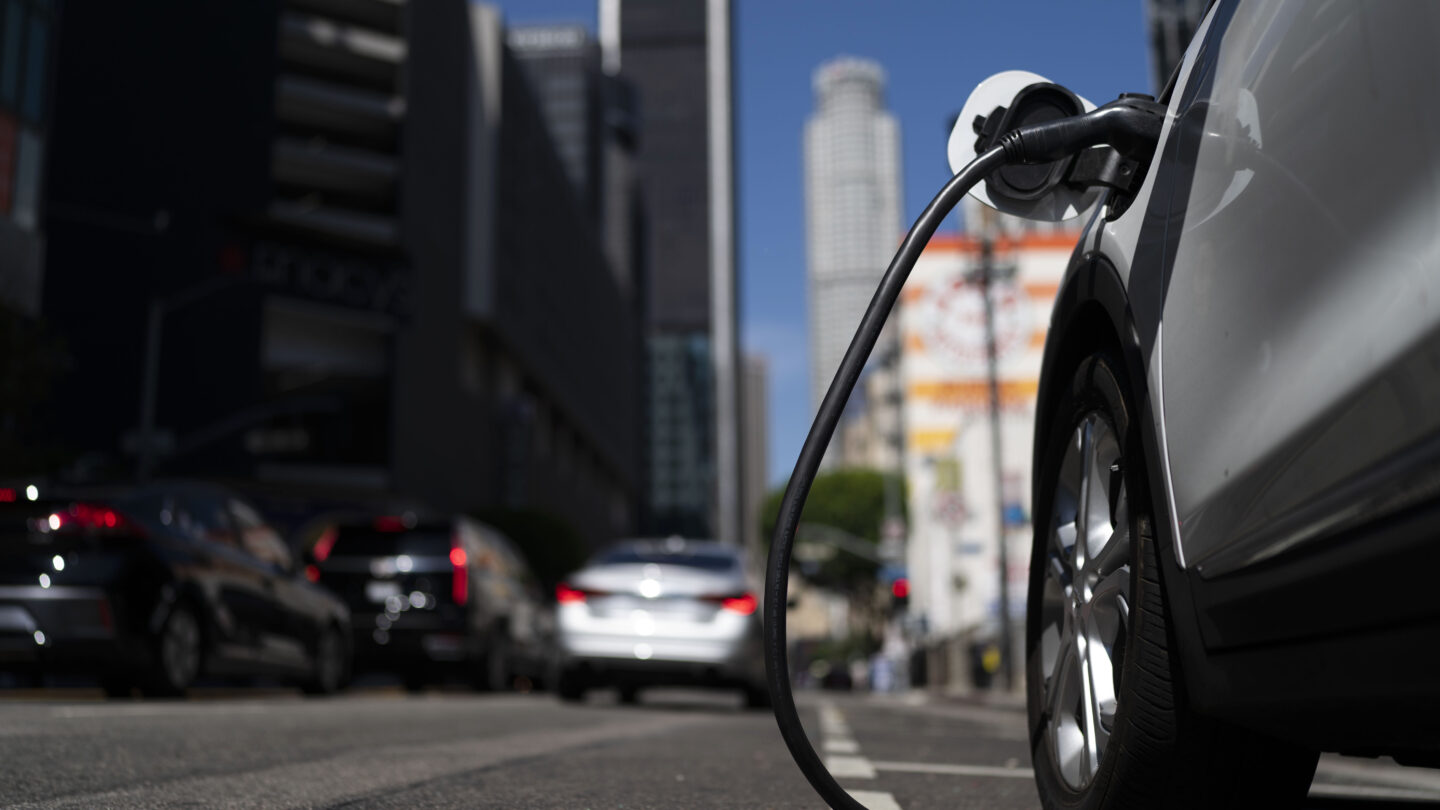The Georgia Department of Agriculture (GDA) has a lot on its plate. The agency regulates and monitors everything from grocery stores to pet breeders, farms and fertilizer — even gas pumps. And as of last year, that list has gotten a little bit longer: In 2023, the Georgia General Assembly passed a law deciding GDA would inspect and regulate electric vehicle charging stations just as it does gas pumps.
Electric vehicles (EV) are on the move in Georgia. The state has not only become a hub for EV companies like Hyundai and Rivian, but state and federal incentive programs, tax credits and expanded EV charging networks have caused the number of EV drivers in the state to continue to tick up.
As Georgia continues to build future EVs for the state and country, it’s also figuring out how to get ahead of the curve and regulate parts of the industry like charging.
EV charger inspections fall under GDA’s consumer protection-related duties, just like inspecting gas pumps, but according to the department’s commissioner, Tyler Harper, the equipment to complete those inspections is going to cost GDA more than it can afford.
At the joint budget meetings held with the Georgia state House and Senate this week, Harper told the legislators his department would need more money to the tune of $150,000.
“When I was before you last year, the chargers — or the testing equipment — that we were looking at as an agency was … they cost around $50,000. Today, that same testing equipment is over $150,000,” Harper said in a joint appropriations hearing with the Georgia House and Senate. “So just in a year’s time, we have seen the equipment that we would be required to purchase as an agency triple and cost, which is a concern of ours, obviously.”
When responding to lawmakers’ questions, Harper explained that there isn’t a more cost-effective option.
“I have one company that actually manufactures testing equipment. So they’re the only game in town, right?” Harper said.
The department can’t wait out high prices and see if they fall. Per last year’s legislation, Harper said the department is expected to have its EV charger inspection program up and running come 2025, which means Harper and his staff only have this year to get everything lined up. He told the legislators at the budget hearings that GDA has looked to see what other states are doing, but not many are working on the same time scale.
“I believe we are the only state that is implementing this in 2025,” Harper said to Sen. Greg Dolezal, vice chairman of the Senate Committee on Appropriations. “Most states are having that conversation around the 2028 timeframe, as you mentioned, and actually 2028 is when the [National Institute of Standards and Technology] standards will be rolled out, as well.”
Harper said the department needs the $150,000 to purchase the necessary equipment or other funding to seek alternatives, such as partnering with other entities like higher education institutes or other experts and figuring out how to design more cost-efficient testing equipment.










